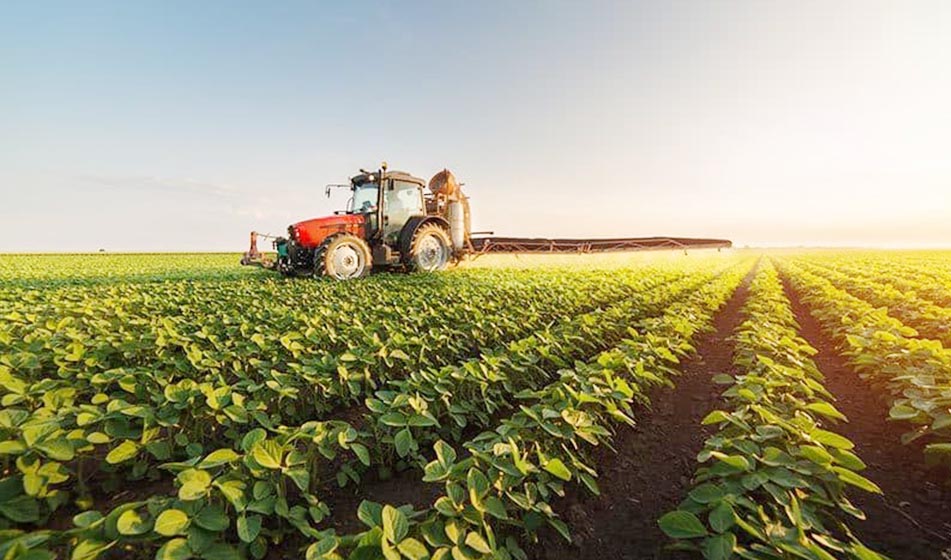Agriculture – is one of the most powerful tools to eliminate hunger from the world. It plays a vital role in the Indian economy, with around half of the overall workforce involved in this sector. Agriculture contributes 18% of the country’s total GDP.
Research and experiments in agriculture biotechnology have proved that even in deserts, crops could be grown. So evidently technology is a crucial aspect in the development of this sector. Since the 1960s technology has been used in agriculture.
This has brought a major development in machines and methods used in farming. But, It was the Internet boom that kickstarted the era of Digital Farming. Usage of farm management systems and mobile devices entered the world of agriculture technology.
It also enhanced the usage of farm management software in India. The Indian government provides subsidies to farmers and also arranges for district-level training sessions to local farmers hosted by farmers who do well.
Digital Farming, also known as Precision Agriculture :
Digital farming helped in augmenting the cultivation process right from sowing to harvesting with the help of location-based and agronomic data. A farm management software automates farm activities such as record management, data storage, and streamlines production.
Developed countries have been early adopters and developing countries like India have now started utilizing a more technologically-aware approach towards the food production sector. One major problem India faces is the small field size. Around 58% of operational holdings are less than 1 hectare.
Punjab, Rajasthan, Haryana, and Gujarat, are the states in India which have 20% of agricultural lands with an operational holding size of more than 4 hectares.
A mobile application, ‘Farm-n-Pedia’ serves as a tool for agriculture management using a single platform. This application provides accessibility, personalization, and enables farmers to access information from all around the world, get expert guidance, and learn the latest technology being used in the sector to increase productivity.
Precision Farming makes use of remote sensing, Global positioning system(GPS), Geographic information system(GIS), Internet of things, and Big data analytics to increase productivity and make farming data-driven. In a nutshell, this business improves the profitability of agriculture.

Why precision farming?
- To increase productivity
- To prevent soil degradation
- To reduce the use of chemicals in crop production
- To use water efficiently
- To improve the quality, quantity and reduce the cost of production
- To develop favorable attitudes
An Integral part of making a farm management system successful is the infrastructure it provides at different stages of the supply chain. Apart from Infrastructure, other factors help in making the right decision while opting for a Farm Management Software India.
Innovation
A good farm management software should not be limited to utilizing data to make the right decisions in the cultivation process, rather it should be focusing on analyzing and constantly learning from the data to provide efficiency for the future.
Integration Capability with other applications
Right from deciding which seeds to plant, storage, and warehousing there are several applications involved. Stable farm management software should ensure seamless communication between these applications to improve the overall efficiency.
Configurable
The Farming practices will differ from nation to nation and even from state to state depending on the availability of infrastructure and the size of the individual farmland. A well-developed system should be easily configurable to solve the challenges that are possessed by different segments.
Data Security
While moving to a more evolved Farm management system, the fear of losing data is the biggest challenge that is faced by agribusiness. So there should be zero data loss and 100% data security while migrating to the new system from the legacy system.

Offline Functionality
Although Internet accessibility has improved globally, still there remain some zones where users are unable to go online. A bad network connection shouldn’t be an excuse for efficient functionality in a good farm management solution.
Localization
Especially in developing countries, many farmers are more comfortable with local languages. Hence offering them the possibility to integrate local languages would make it easy for them to adapt to the system.
Scalability
In Agribusinesses, scalability plays a major role in development. Organizations will have a complete roadmap for the future in terms of expansion to new regions and scaling up the operation by adding new crops. Farm management solutions should empower the business to take such a leap forward rather than being a concern.
Forecast and Measure Profits
The Farm management system should have the capability to keep track of all the financial activities. Since farming is a large-scale business, as like any other business keeping track of the expenses and any activity carried out on the farm will be a major feature in a system.






